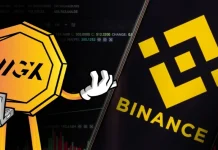
These recent changes in the crypto landscape and fluctuating crypto price trends have shaken the financial landscape. Until yesterday, the whole crypto landscape held its breath as the U.S. Securities and Exchange Commission stood on the verge of approving Ethereum ETFs, a decision poised to transform the cryptocurrency market forever.
When the Ethereum ETF received approval from the SEC, it saw a lot of downtrends. The market is becoming unpredictable as the rising prices of ethereum spot ETFs have started falling off. Amidst speculations and unpredictabilities, many questions arise about spot ETFs and how these work in the market. What implications would it make, and what the future of spot ETFs look like?
Could this decision herald a new era of investment opportunities in the market, or is it an invitation to the regulatory benchmarks in the crypto industry to bring new perspectives to the market?
The Background: Bitcoin Spot ETF
On January 10th, 2024, the US securities regulator SEC approved the first US-listed exchange-traded funds to track Bitcoin in a watershed move for the world’s largest cryptocurrency and the broader crypto industry. This very first crypto ETF opened another dimension to cryptocurrencies. These crypto ETFs permit traders to obtain direct exposure to digital currency prices without actually owning the assets.
Nevertheless, crypto ETFs generally have higher fees than other ETFs and lack suitable oversight of the cryptocurrency markets in which the investments are placed. The SEC maintains that preventing deceitful behavior and guaranteeing reasonable trading practices in those cryptocurrency markets is challenging without proper surveillance and agreements to share information.
How Does ETF Work?
ETFs copy the performance of underlying assets in the same way that indexes do; they do so by maintaining a basket of underlying assets such as stocks or commodities. However, crypto ETFs imitate the performance of digital currencies via spot ETFs, which hold the cryptocurrency directly. Conversely, futures on ETFs typically make use of exchange-traded funds.
The last type of contract is a futures contract, which allows someone to purchase or sell crypto at a fixed date and price. As a result, when the price of crypto futures contracts increases or declines, so does the price of shares in a cryptocurrency ETF. On the other hand, synthetic crypto ETFs come with additional risk due to a lack of supervision and concerns about valuing goods on crypto exchanges.
The Ethereum ETF Approval & Its Implications
The approval odds for Ethereum ETFs saw a dramatic shift this past Monday, as Bloomberg analysts Eric Balchunas and James Seyffart speculated their approval odds from 25% to 75%. Balchunas noted the sudden change, mentioning rumors that the SEC might reverse its stance, turning the issue into a political one and causing widespread speculation.
The debate over whether Ethereum should be classified as a security or commodity continues. Critics argue it meets the Howey test criteria—investment of money, expectation of profits, common enterprise, and reliance on others’ efforts—suggesting it should be deemed a security.
However, despite all speculations of denial and approaches, Ethereum spot ETFs have been approved and are making every head turn in their performance.
Potentially, the Ethereum spot ETF has opened another path for non-crypto investors to invest in this through these ETFs, which is seen as a long-term benefit to the crypto market, as these ETFs are holding strong ground to attract investors outside its crypto periphery.
Now, experts and Crypto investors are looking forward to the upcoming results the Ethereum ETF will bring to the market.











